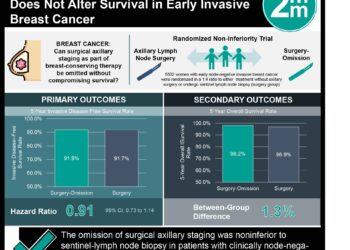Oral contraceptive pills associated with reduction in ovarian cancer incidence
Image: PD
1. Women who used oral contraceptive pills (OCPs) were at a significantly lower risk of developing ovarian cancer than women who never used OCPs.
2. Reduction in ovarian cancer risk was OCP duration-dependent.
Evidence Rating Level: 2 (Good)
Study Rundown: This systematic review and meta-analysis identified a significant duration-dependent reduction in ovarian cancer incidence in women with a history of OCP use. This review adds to the existing literature base suggesting OCP use may be protective for ovarian cancer. This study is the first meta-analysis assessing the relationship between OCP use and ovarian cancer incidence, but findings are somewhat limited by a lack of randomized controlled trials. Prospective studies might better characterize the degree of ovarian cancer risk reduction affected by OCP use while also incorporating assessment of the risks of long-term OCP use.
Click here to read this article in Obstetrics & Gynecology
Relevant Reading: Uptodate: Epithelial carcinoma of the ovary, fallopian tube, and peritoneum
Study Author, Dr. Laura J. Havrilesky, MD, talks to 2 Minute Medicine: Duke University School of Medicine, Department of Obstetrics and Gynecology
“This systematic review and meta-analysis reinforces the long recognized association between oral contraceptive (OC) use and a reduction in ovarian cancer incidence. While not providing definitive prospective evidence for the use of OCs solely for ovarian cancer prophylaxis, it does reinforce one potential medical benefit of OCs that should be discussed in addition to consideration of the established risks of this method of contraception.”
In-Depth [systematic review and meta-analysis]: This systematic review included controlled studies evaluating the incidence of ovarian cancer in women with and without exposure to oral contraceptive pills (OCPs). Two investigators independently reviewed articles for inclusion or exclusion. Random-effects meta-analyses were preformed examining the relationship between ever use of OCPs and duration of OCP use and the primary outcome, ovarian cancer incidence.
Twenty-four case-control and cohort studies met inclusion criteria and were included in the first meta-analysis, which found that women who had ever used OCP’s were 27% less likely to develop ovarian cancer compared to women who never used OCP’s (OR: 0.73, 95% CI: 0.66-0.81). Lifetime reduction in ovarian cancer attributable to OCPs was 0.54% such that the number needed to treat was 185 women (assuming an average of 5 years of use). Fifteen case-control and cohort studies were included in the second meta-analysis, which found that compared to never users, women who used OCPs for 1-12, 13-60, 61-120, and >120 months respectively had ORs of 0.91 (p=0.250), 0.77 (p=0.001), 0.65 (p<0.001), and 0.43 (p<0.001), demonstrating a dose-response relationship.
By Maren Shapiro and Leah Hawkins, MD, MPH
More from this author: USPSTF recommends chemoprevention for women at high risk for breast cancer, IUD contraception equally safe in teenagers as in older women, Black men less likely to receive follow-up for elevated prostate cancer marker, PSA, More U.S. women using emergency contraception pill, No-cost contraception reduces unintended pregnancies
© 2013 2minutemedicine.com. All rights reserved. No works may be reproduced without written consent from 2minutemedicine.com. Disclaimer: We present factual information directly from peer reviewed medical journals. No post should be construed as medical advice and is not intended as such by the authors or by 2minutemedicine.com. PLEASE SEE A HEALTHCARE PROVIDER IN YOUR AREA IF YOU SEEK MEDICAL ADVICE OF ANY SORT. Content is produced in accordance with fair use copyrights solely and strictly for the purpose of teaching, news and criticism. No benefit, monetary or otherwise, is realized by any participants or the owner of this domain.







